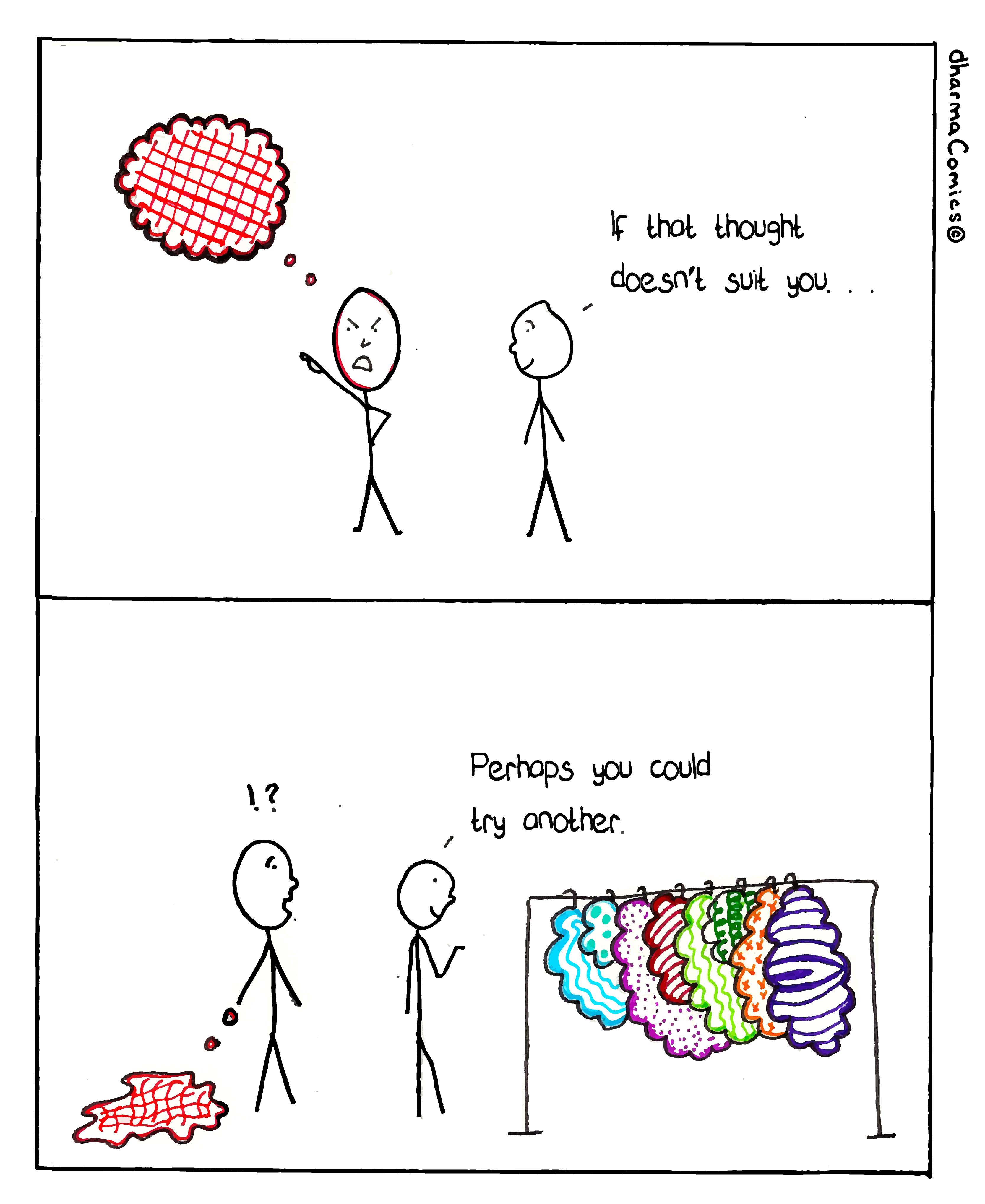Lessening the Power of Negative Emotions

IMAGE OF THE WEEK

I profoundly believe that real spiritual change comes about not by merely praying or wishing that all negative aspects of our minds disappear and all positive aspects blossom. It is only by our concerted effort, an effort based on an understanding of how the mind and its various emotional and psychological states interact, that we bring about true spiritual progress. If we wish to lessen the power of negative emotions, we must search for the causes that give rise to them. We must work at removing or uprooting those causes. At the same time, we must enhance the mental forces that counter them: what we might call their antidotes. This is how a meditator must gradually bring about the mental transformation he or she seeks.
How do we undertake this? First we identify our particular virtue's opposing factors. The opposing factor of humility would be pride or vanity. The opposing factor of generosity would be stinginess. After identifying these factors, we must endeavor to weaken and undermine them. While we are focused on these opposing factors, we must also be fanning the flames of the virtuous quality we hope to internalize. When we feel most stingy, we must make an extra effort to be generous. When we feel impatient or judgmental, we must do our utmost to be patient.
When we recognize how our thoughts have particular effects upon our psychological states, we can prepare ourselves for them. We will then know that when one state of mind arises, we must counter it in a particular way; and if another occurs, we must act appropriately. When we see our mind drifting toward angry thoughts of someone we dislike, we must catch ourselves; we must change our mind by changing the subject. It is difficult to hold back from anger when provoked unless we have trained our mind to first recollect the unpleasant effects such thoughts will cause us. It is therefore essential that we begin our training in patience calmly, not while experiencing anger. We must recall in detail how, when angry, we lose our peace of mind, how we are unable to concentrate on our work, and how unpleasant we become to those around us. It is by thinking long and hard in this manner that we eventually become able to refrain from anger.
One renowned Tibetan hermit limited his practice to watching his mind. He drew a black mark on the wall of his room whenever he had an unvirtuous thought. Initially his walls were all black; however, as he became more mindful, his thoughts became more virtuous and white marks began to replace the black ones. We must apply similar mindfulness in our daily lives.
Excerpted from "An Open Heart: Practicing Compassion in Everyday Life", by The Dalai Lama, edited by Nicholas Vreeland.
SEED QUESTIONS FOR REFLECTION: How do you relate to the strategy of reducing the opposing factor, while fanning the flames of the virtuous quality? Can you share the story of a time you were able to refrain from anger? What practice helps you lessen negative emotions?